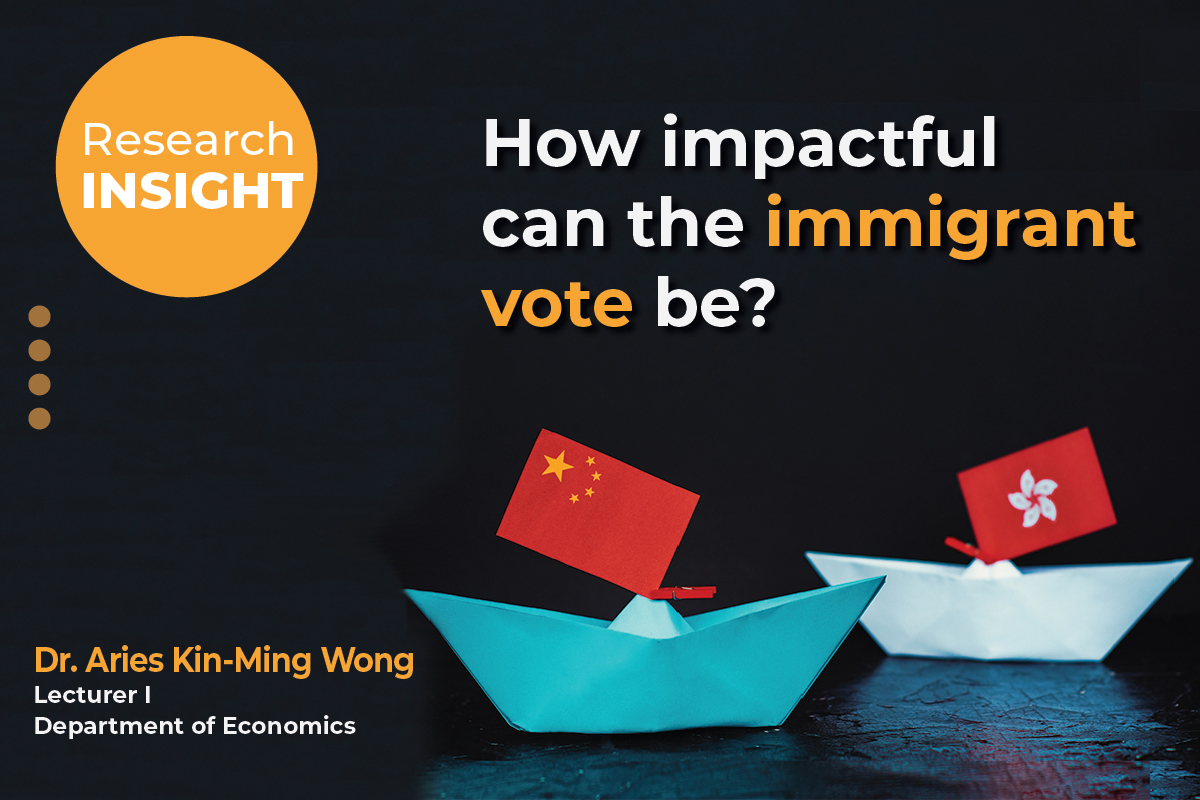School of business - research
How impactful can the immigrant vote be?


Recent research suggests that the migrated population has a strong influence on the electoral outcomes in their home countries. How about the impact of these people in where they reside? While keen to adapt to their new home, immigrants don’t abandon their culture as they plant new roots but carry with them everything from their cuisine and music to their customs and prejudices.
In a recent paper, Dr. Kin Ming Wong uses data from Hong Kong to explore how immigrants can impact the politics of a host region. Once described by Lord Palmerston as “a barren rock with nary a house upon it”, Hong Kong is a city built by immigrants who mostly came from mainland China, first as refugees and, more recently, under the one-way permit scheme. Numbering more than two million, mainland-born residents account for approximately 32% of Hong Kong’s population and thus constitute an important demographics. Meanwhile the sharp divide between the pro-democracy camp and the pro-government camp makes it easy to classify political preference, especially since there was hardly any competition between pro-government candidates across the more than 1,000 district council elections studied by Wong.
Findings reveal that pro-government candidates were likely to perform better in districts with a higher proportion of residents born in mainland China, and this effect has also been increasing over time. With further investigation, this pattern comes from the fact that recent immigrants are more likely to support pro-government candidates. Indeed, Wong shows that each increase of 1% in the share of mainland immigrants who have lived in Hong Kong for less than 10 years translates into a 0.48% increase in support for pro-government candidates.
Wong attributes this to why immigrants moved to Hong Kong in the first place. Mainlanders who came to Hong Kong up the 1990s were fleeing the political and economic turmoil prevalent in mainland China during that era. Meanwhile, recent immigrants moved to Hong Kong when the country was more prosperous and stable. Even if they don’t yet have the right to vote, they can still influence the voting pattern by transferring information and beliefs to the population with the voting rights.
The research reminds us the important role of migration in shaping political institutions. Moreover, experience of the migrated population in their countires is vital to how they vote in their new home.
Reference:
Wong, K. (2021). Migration and Political Institution: Other Side of the Hill. Pacific Economic Review, 26(1), 54-69.